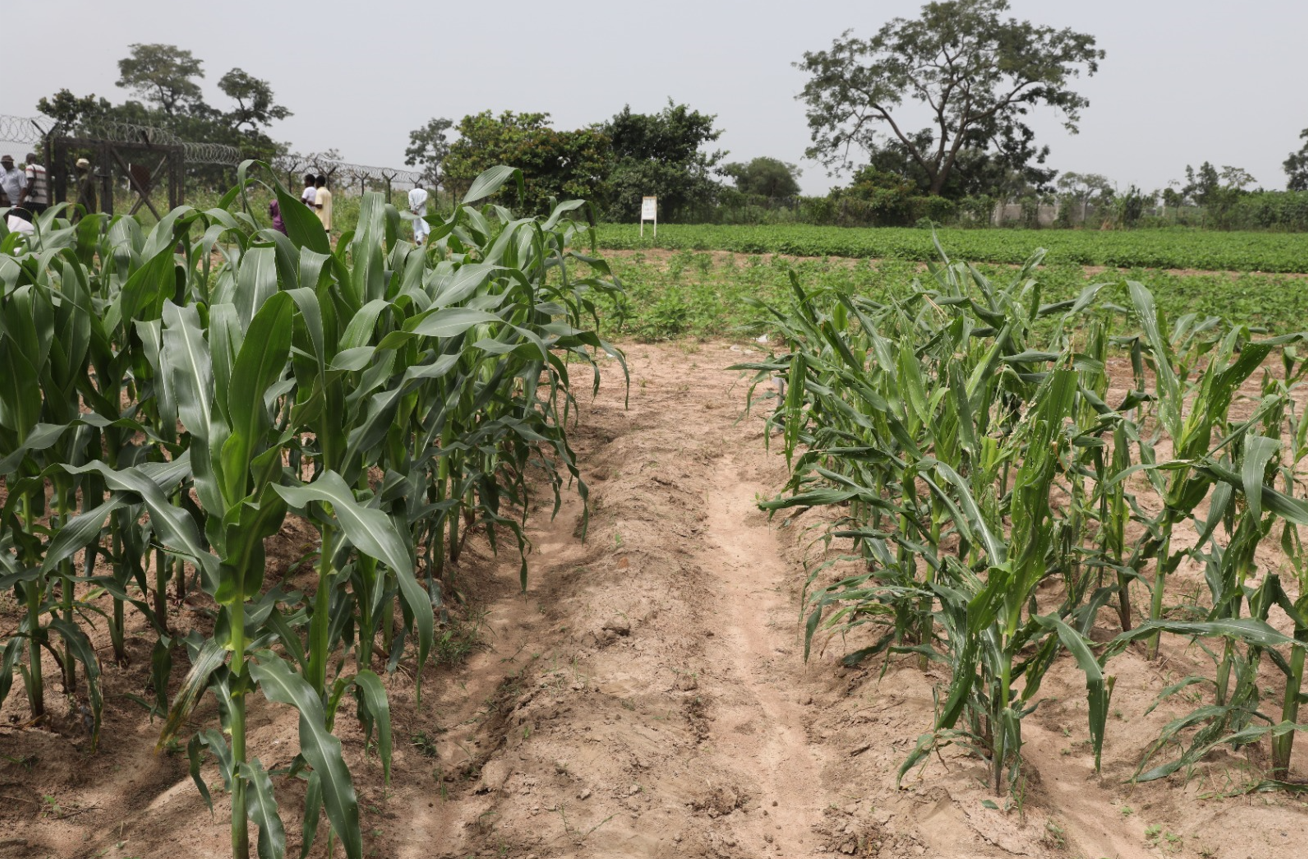
[Kigali, Rwanda: October 2024]: – The Ministry of Agriculture and Animal Resources (MINAGRI) and the African Agricultural Technology Foundation, AATF have announced a public-private partnership to benefit over 500,000 farm households in Rwanda by developing high-yielding pest- and disease- resistant cassava, maize and potatoes.
The partnership, known as the Rwanda Agricultural Biotechnology Programme, aims to improve the productivity and resilience of three staple crops — cassava, maize, and potato — critical to the food security and livelihood of farming families.
The announcement was made following a two-day launch and planning meeting that brought together the Programme’s partners. The initiative will be coordinated by AATF and the Rwanda Agriculture and Animal Resources Development Board (RAB) and include the International Potato Center (CIP), Michigan State University (MSU), Bayer Company, the International Maize and Wheat Improvement Centre (CIMMYT) and the Donald Danforth Plant Science Center in St. Louis, MO.
Speaking on behalf of the Minister for Agriculture and Animal Resources, Dr. Telesphore Ndabamenye, RAB Director General, said a partnership approach is key to the project’s success as it will ensure key stakeholders cooperate effectively to address food insecurity in a sustainable way.
“By integrating research and extension services, we can equip farmers with the necessary tools and knowledge to boost productivity and resilience,” he said, adding that a clear road map, coupled with robust monitoring and evaluation, is essential to track progress and ensure that the project stays on course.
Dr. Canasius Kanangire, Executive Director of AATF, noted that the improved crops developed through the project will provide Rwandan farmers with the opportunity to access and plant new varieties that are resistant to devastating insect pests and diseases.
“The destructive nature of diseases like cassava brown streak and potato late blight, along with insect pests such as stem borers and fall armyworm, are denying Rwanda’s farmers the full benefit of these widely grown staple food crops,” he said. “By providing protection against these threats, the new varieties will help assure farmers better harvests and quality products.”
Dr. Kanangire pointed out that AATF has been working with various partners across different crop value chains to empower smallholder farmers throughout Sub-Saharan Africa with a wide choice of agricultural innovations that improve health and generate wealth for their families and communities.
Simon Njeru, Regulatory Science Project Lead at Bayer East Africa said that farming innovations have the potential to drive significant progress, particularly in addressing climate change, enhancing nutrition and empowering communities.
“Many crops, such as cassava, are vital to the agenda of empowering smallholders for food security and economic growth, but their enhancement is often neglected by plant scientists,” he said, adding that the project aims to create value for smallholder farmers by focusing on these key crops, ultimately contributing to sustainable development and improved livelihoods.
Dr. Yoseph Beyene, CIMMYT’s Regional Maize Breeding Coordinator for Africa, explained that CIMMYT focuses on developing and delivering stress-resilient crops suitable for various regions in Africa and collaborating with different organizations to enhance agricultural productivity.
‘’We are excited to contribute to the new project aimed at improving crops like maize, cassava, and potato in Rwanda, which will build on the partnership we have had with AATF and Bayer since 2007 to develop drought-tolerant and insect-resistant maize for Sub-Saharan Africa, utilizing conventional breeding, molecular tools, and biotechnology,’ he said, adding that four transgenic maize hybrids have already been released in Nigeria, with progress being made in Ethiopia and Mozambique for possible release soon.
Dr. Dinah Borus, CIP senior scientist, in charge of CIP operations in Rwanda, said that potato production in Rwanda is limited by late blight disease, which is estimated to reduce yields by 13 to 60 percent, depending on the season. “CIP and partners have identified at least two varieties ready for deployment in Rwanda following adaptation trials,” she said.
The biotech potato varieties will be tested in Rwanda to ensure complete resistance to late blight disease and will be released after review and approval by Rwandan regulatory authorities.
Dr. David Douches, Director of the Plant Breeding, Genetics and Biotechnology Interdepartmental Graduate Program at MSU, observed that late blight disease can cause total crop destruction. “However, certain potato varieties have been developed to offer complete resistance to late blight disease,” he said. “This breakthrough will benefit farmers in Rwanda and other countries by improving crop resilience and yields.” He noted that the project is already preparing to present the regulatory dossier for disease-resistant potatoes to the government of Kenya, a key step towards making these improved varieties available to farmers.
Dr. Sylvester Oikeh, who leads biotech maize development at AATF, noted that Rwanda’s national maize average yield of 1.6 tons per hectare is well below the crop’s potential, leading the country to spend over $23 million annually to import 100,000 tons of maize grain. Yields can be increased with the improved maize varieties that are drought tolerant and resistant to insect pests.
“A pool of insect resistant and drought tolerant maize varieties has already been tested for different growing zones in Rwanda,” he said. “They will be available to farmers, pending adaptation trials and approval by regulators,” said Dr. Oikeh.
*********
For further information, please contact:
- Dr. Athanase Nduwumuremyi, OFAB Coordinator and Program lead at RAB, Rwanda; athanase.nduwumuremyi@rab.gov.rw
- George Achia, Communications Officer, East & Southern Africa, AATF; g.achia@aatf-africa.org, +254 785334163
*********
About Rwanda Agricultural Biotechnology Programme
The Rwanda Agricultural Biotechnology Programme is funded by the Bill & Melinda Gates Foundation and Gates Philanthropic Partners for five years, beginning October 2024. It brings together the Rwandan Agriculture and Animal Resources Development Board (RAB), AATF and partners in potato, cassava and maize to test and deploy improved varieties of these crops that address disease and pest challenges for the benefit of small holder farmers in Rwanda. Coordinated by AATF, it brings together government, private sector, research and development partners.
About RAB
Rwanda Agriculture and Animal Resources Development Board (RAB) is a public agency of the Ministry of Agriculture and Animal Resources (MINAGRI) with a general mission of developing agriculture and animal resources through research, agricultural extension, and animal resources extension to increase agricultural and animal resources productivity and quality, as well as their derived products.
For more information visit: https://www.rab.gov.rw/


















































































